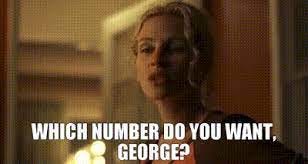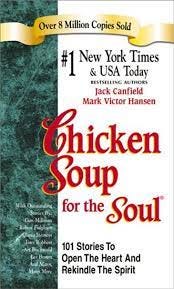Rejection
A 9-part series on the 9 “R”s of rejection: redefine, remind, reframe, replace, rethink, redefine again; reasons and resolutions; Rihanna!
As an editor of a humor and satire column I’ve rejected thousands of submissions.
As a teacher I’ve read thousands of pieces that could be published, if only they were submitted (and then resubmitted).
As a freelancer I DON’T WANT TO TALK ABOUT REJECTION.
As an author I’ll riff on Erin Brockovich:
2 is the number of agent breakups I’ve had. How about this for a number: 50. 50 is the number of agents I queried (I think? I lost count). 50 is also around the number of rejections I received from agents. 10 is the number of years it took to sell my book. 6 is the figure I was paid for my book. Infinity is the number of therapists I’ve cried at about my book.
TL;DR Welcome to my 9-part series on the 9 “R”s of rejection from my perspective as an editor, teacher, freelancer, author, therapy patient, and ex-girlfriend.
1. Redefine
What is rejection, really? Redefining rejection has saved my career, sanity, and self-esteem. Let’s go:
Rejection is submission. “Rejection,” writes Stephen Marche in On Writing and Failure, is “the practice of submission, which is the practice of writing.” Thus: writing is rejection.
Rejection is proof of your work ethic. “I love my rejection slips,” Sylvia Plath said, “they show me I try.” And if Sylvia Plath can have this attitude, then . . .
Rejection is a constant. With writing, you know what they say, “You miss one hundred percent of the shots you take.”
Chicken Soup for the Soul was rejected 144 times before it was published.
Zen and the Art of Motorcycle Maintenance by Robert Pirsig was rejected 121 times.
Carrie by Stephen King was rejected 30 times.
A Wrinkle in Time by Madeleine L’Engle was rejected 26 times.
Catch-22 by Joseph Heller was rejected . . . 22 times.
The Diary of Anne Frank by Anne Frank was rejected 15 times.
Rejection is required, and one rejection isn’t enough.
Writing is 50% writing, and 50% emotional breakdown/doubt/fear/self-hatred/second-guessing/rejection.
My first writing teacher said, “The professional writer’s first goal should be to amass 100 rejections,” which is now standard rejection advice.
So, it’s not that you’re rejected too often but that you’re not rejected often enough.
Rejection is not failure. And failure isn’t bad reviews or bad sales or bad timing. Failure is writing that isn’t written. Failure is when you could write something great or idiotic, except you don’t. Failure is having a voice and not using it.
Every successful person I know has this in common: for 10 years they didn’t quit. They were rejected a lot, and maybe they did quit a lot, but they kept coming back.
Writers who quit and writers who don’t quit are the same emotionally—but the writers who don’t quit have figured out how to quit and come back, on repeat.
Rejection can be a blessing.
Months or years after a rejection, I’m thankful that my undercooked, not-genius-in-hindsight writing doesn’t live on the Internet. If I had time, then I’d write thank-you notes to all the editors who rejected my early, bad writing.
Rejection inspired me to start my own humor and satire column—to publish myself and other marginalized voices but mostly myself.
Rejection is a matter of finding your audience. So, what feels like rejection isn’t—you’re just in the wrong room with the wrong audience.
Rejection always sucks. You don’t learn to stop being devastated. You learn to work through devastation faster. I’m paraphrasing Beyoncé on nervousness.
Rejection is a mystery. A lot of good work is rejected. A lot of bad work is published (and acclaimed) (and nominated) (and award-winning). A lot of good work isn’t submitted. A lot of bad work is. Literally no one knows why. One of life’s greatest mysteries is why some writers succeed while everyone else, especially you, do not.
When the thousands of “best books of 2022” lists came out, I expected my book to be listed somewhere, anywhere. It wasn’t.
I read almost every book that was listed, to learn why. But out of the hundreds of “best” books, I loved only some, and I didn’t learn why my book wasn’t listed or why other books were. I learned there are no answers.
Rejection is a dark teacher. Every rejection is an opportunity to revise and rework with clear eyes, full hearts, etc. Something isn’t right; can you figure out what it is? Even if nothing’s wrong, you can tighten/sharpen/cut at least a page/paragraph/sentence/word.
Rejection provides a waiting and gestation and marinating period for writing to find its true place in your psyche and in the world.
One rejected essay I reworked for years, and it ended up in a best-selling anthology. I reworked it again for my book (not a bestseller).
Rejection taught me what I needed to know to write and sell my book. Between rejections I learned how to write. Each draft was better than the last—it was less wordy/confused/convoluted and had more perspective/insight/jokes.
Rejection hones your gut reaction to feedback. (Rejection is feedback.)
Years ago, I showed an essay about depression to my agent, and she told me to cut a footnote about The Human Centipede. In that moment I knew: the footnote was the essay. I rewrote the essay to be about The Human Centipede, and I submitted and published it on The Paris Review’s website on Halloween.
A lot of rejections mean that you’re getting a lot of feedback. Then, by the time you publish, your writing won’t feel under-cooked or rushed or not considered from every angle.
Hot tips: Let rejection remind you of your vision. Let rejection guide you in the direction you choose. Let rejection inspire you to rework everything. Let rejection refine the stories you can’t stop retelling.
Rejection isn’t personal. Of all the reasons your writing isn’t accepted, only some have to do with your actual writing.
In your defense, you reveal yourself to everyone by writing, and you’re not supposed to take rejection personally?
You are—
and you’re not.
This month I’ll get into the reasons why writing is rejected and how to avoid the unavoidable and more, a lot more.
Next on Tragedy Plus Time:
Rejection parts 2, 3, 4, 5, 6, 7, 8, and 9.
Get rejected less by writing better by taking my upcoming seminar:
How to Write a Tragicomic Memoir
October 8th (Sunday)
2-5pm EST
Online, via Writing Workshops
Learn to make readers laugh while RIPPING OUT THEIR HEARTS in a full-length sad, funny book about yourself and your exes.
ICYMI: I’m Elissa Bassist, and I teach short conceptual humor/satire writing, funny personal essays, tragicomic memoir, emotional emails, and that’s it. I teach in person and online at The New School, 92NY, Lighthouse Writers Workshop, Writing Workshops, and elsewhere. I founded and edit the “Funny Women” column on The Rumpus, and I wrote the award-deserving book Hysterical. I am probably my therapist’s favorite.
Smash:
Smash:
Smash:
(Consider smashing “paid” because I’m building something here and could truly, madly, deeply use your support.)
And smash that heart button to help people in the Substack Multiverse find this newsletter.








EXCELLENT! And to always reserve our right to discern what others suggest. To hold on to just the thing that makes us who we are.
Ooooh I’m saving to read this series and engage.